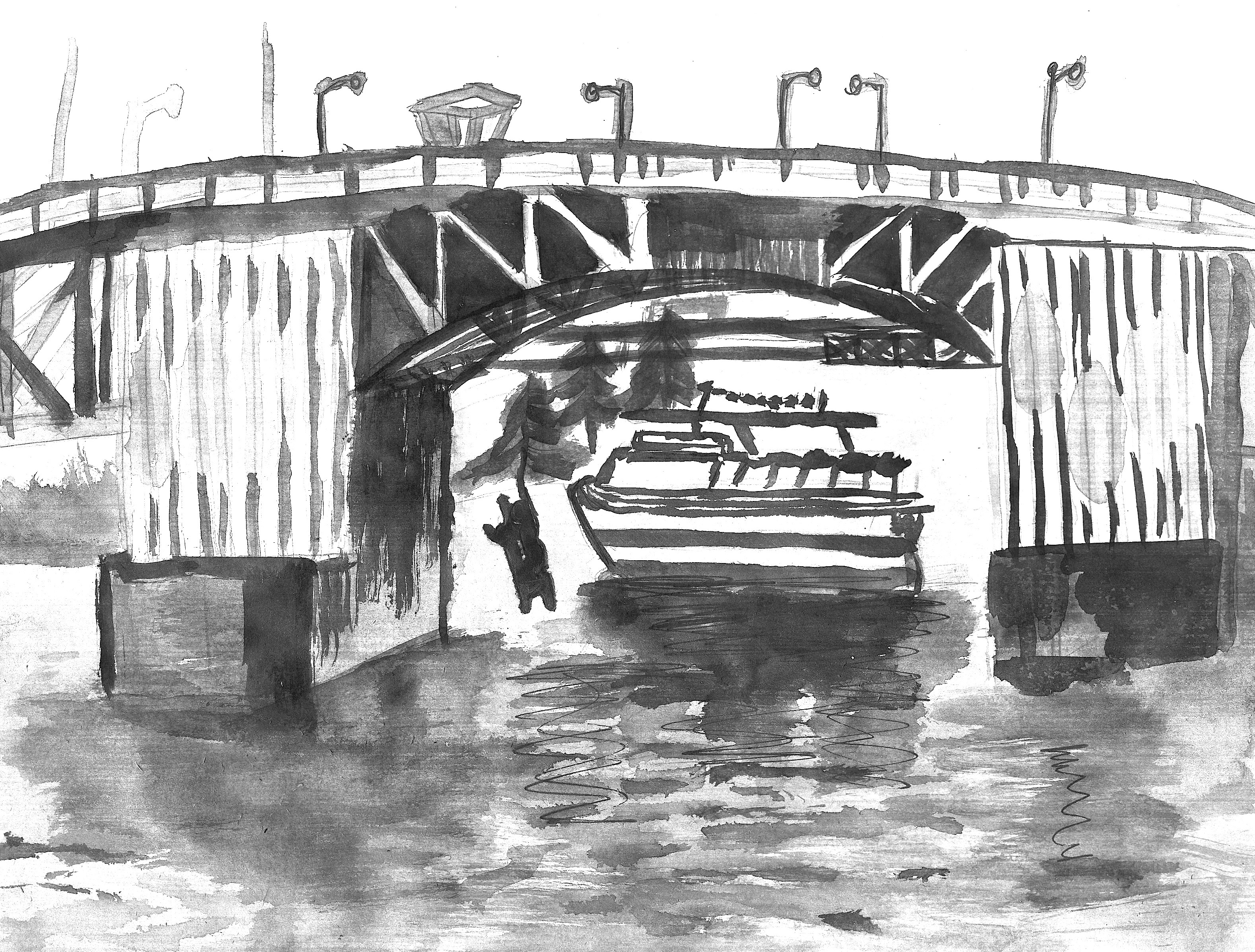
By Caleb Diehl and Zibby Pillote /// Managing Editor and Editor-in-Chief
This year the senior cruise, like seniors’ engagement in coursework, went smoothly until its last moments. As the “Portland Spirit” pulled into dock, two students dove off the side, prompting a rescue by members of The Multnomah County River Patrol, Portland Fire & Rescue and the cruise ship staff. While it’s a dumb move to jump off a ship, the actions of individuals shouldn’t take the option of a cruise away indefinitely.
Of course, the jumpers damaged the reputation of Lewis & Clark on the city’s most prominent waterway. They jeopardized the college’s relationship with local businesses and its perception in the eyes of law enforcement. They showed disregard for the planning committee’s preparation.
It’s important to note, however, as the Student Planning Committee for Senior Experience did in a letter to the senior class, the “300 seniors on the cruise who represented LC in an exemplary fashion.” The ratio of boat jumpers to less enthused partiers is skewed toward safety and good sense. The jumpers are anomalies among a senior class that behaved with dignity throughout the event.
Undoubtedly, some administrators will consider, as authority figures overseeing younger students often do after a case of individual recklessness, taking the perceived cause of the reckless behavior away from future classes. In second grade, if one student gets hit by a particularly hard snowball, teachers ban all snowball fights. If someone gets injured on a piece of playground equipment, an elementary school removes all playground equipment. Responses to calamity often mushroom out of proportion to the original event.
It’s possible to promote safety without suffocating the thrill of an event like the senior cruise. Administrators or the planning committee could distribute information before next year’s event to remind students of the behavior and response last year, and warn them of the dangers of pitching into the Willamette (not the least of which would be the toxins that must lurk somewhere in its brown sludge). They could discuss how with passengers in the water, the ship’s propellers must stop churning and rescue swimmers must scramble to the scene.
Nothing can ensure the absence of reckless behavior, but these measures should make a difference. In debating the value of a cruise, we should consider a measured response before jumping ship on the idea completely.
Caleb Diehl is the editor-in-chief of The Pioneer Log. His work has also appeared in The Park Record and on the Lewis & Clark School of Education and Counseling webpage. He is a contributing writer to the LC Journal for Social Justice. Follow Caleb on Twitter @calebsdiehl. Zibby Pillote is the editor-in-chief of the Pioneer Log. Her work has also appeared in The Portland Mercury and the Lewis & Clark College webpage. She likes to write about music and culture. Follow her @ZibbyPillote.
Subscribe to the Mossy Log Newsletter
Stay up to date with the goings-on at Lewis & Clark! Get the top stories or your favorite section delivered to your inbox whenever we release a new issue.

Leave a Reply